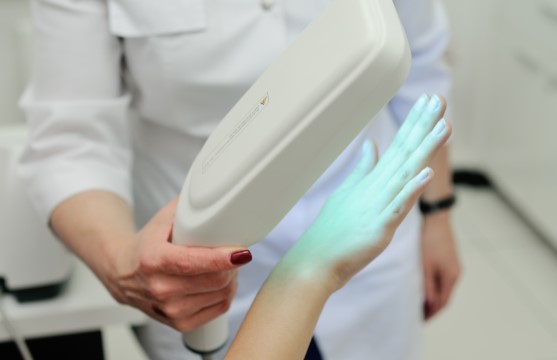Phototherapy is when your dermatologist (skin doctor) uses ultraviolet (UV) light to treat your psoriasis. It works because UV light reduces the inflammation of your skin helping to clear, but not cure, your psoriasis.
A course of phototherapy can vary in duration, depending on what type you receive. Some types last around 8–10 weeks while others need up to 16 weeks. You will need to go into the Phototherapy Unit in hospital two or three times a week to receive it.
